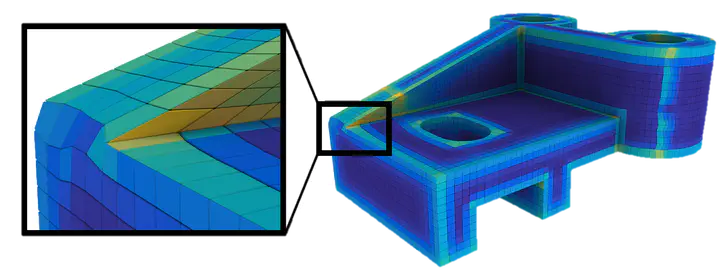Sébastien Mestrallet

Robust and good-quality hexahedral mesh generation thanks to machine learning
Advisors: F. Ledoux (main) and C. Bourcier (CEA, DES)
Team: LIHPC, Université Paris-Saclay
Phd thesis started October, 10, 2021
Subject
In order to make computations on discrete models, hexahedral meshes are often needed because:
- some computation codes can only manage hexahedral elements (or these codes are only qualified for hexahedral elements)
- hexahedral elements allow to get a mesh with less number of elements in shapes with small thickness
- hexahedral elements obtained by block splitting have in general good aspect ratio, allowing a better convergence and a better quality of the result of the simulation.
The current hexahedral meshing algorithms (using octree method or cartesian grid) do not always allow to have a mesh with a good enough quality to be usable as the input of a numerical simulation. Some cells are too distorted near curved faces and refinement areas.
As a result, our colleagues often have to make a manual block splitting of the geometry in hexahedral blocks, which is tedious and takes a long human time (from several days to several months), and is sometimes impossible. Some new automatic methods like polycubes or field frames are being developed in the academic world but they are not robust enough to guarantee a good-quality mesh on every geometry. Hence, this is an open problem. Machine learning algorithms are allowing major improvements in many fields. Some new articles show that they are being investigated in the field of CAD (Computer Aided Design) and mesh generation.
The aim of this thesis is to find machine learning algorithms that can be applied to robust and good quality hexahedral mesh generation.